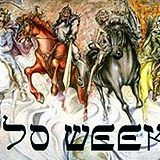-
Recently Browsing 0 members
- No registered users viewing this page.
-
Similar Content
-
God's historic national rods of His wrath, discipline and purification of Israel and what that may portend. 1 2 3 4 17
By Jonathan Dane,
- trump
- donald trump
- (and 11 more)
- 168 replies
- 3,660 views
-
antichrist Is the Man of Sin returning to POWER? 1 2 3 4 9
By Jonathan Dane,
- trump
- donald trump
- (and 11 more)
- 88 replies
- 1,854 views
-
RESURRECTION AND RAPTURE ROUGHLY BETWEEN APRIL 2023 AND APRIL 2024? 1 2 3 4 5
By CLIVE CAMPBELL,
- resurrection
- rapture
- (and 5 more)
- 46 replies
- 8,404 views
-
- 1,775 replies
- 60,744 views
-
- 370 replies
- 10,087 views
-



.thumb.jpg.78a316778a2b75f1377c52957d74a45f.jpg)

Recommended Posts